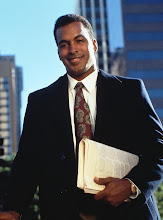It is not to be expected that a satisfying philosophy of education will be widely spread when a satisfying philosophy of life is so seldom achieved. If life lacks a sense of direction, so will the education it is possible to give our children whether at home or in school. A generous allowance of pocket-money with which to purchase ice-cream and happiness may well be an unconscious confession of inability to impart gifts more valuable. In such a time of holiday from conviction some kinds of learning will not take place at all and our young people will be left, as many are left today, on the loose. Even techniques and skills themselves - looking, listening, reading, writing - will be acquired with less effectiveness and less intensity. And to try to meet the challenge, as we may be tempted to do, with a reply in material terms is not to meet it, no multiplication - however desirable in itself - in the number of new schools and laboratories, of youth centres or technical colleges, will answer such questions; no re-arrangement of secondary education so that more of it will become 'comprehensive' at eleven or 'multilateral' at fifteen; no piercing of more entrances through the walls of our universities. What has brought this state of affairs? What can be done to remedy it?
Some of the causes of our lack of purpose and direction are, no doubt, physical, two major wars in forty years have drained us of some of our energy. But the failure of nerve threatened long before 1914, and is not unconnected with one of man's greatest achievements - the spread of the scientific temper of mind. A scientific temper must necessarily encourage attitudes of non-commitment; it must incline men to concentrate on material, analyzable phenomena as being the best fitted for steady observation, controllable experiment and useful discovery.
Now an analytic habit of mind, of untold promise as an instrument, has its dangers. Because we are looking for truth through microscopes and testing it by logical processes of examination and reasoning it will be easy to be prevented from seeing much that is true. We owe an immense debt to science, and the future of mankind must more and more be influenced by its findings and applications, but Samuel Butler's subtle fears that we might become its slaves - though in deeper ways than the Erowhonians - ought still to be arrows in the conscience.
As long as science was content to deal with the apparently objective world it was of course possible to remain as untroubled by its finding as were most of the early Victorians. Chemistry, geology, even physics, dealt - however analytically -with matter and things comfortably separate from man. But the application of The Origin of Species in 1859 showed to the many that science could disturbingly include within its province both the animal and the human; and by the end of the nineteenth century it was clear that the human mind itself, the very springs and hidden motives of action, could also be subjected to analysis. We were no longer safe. If our actions were the products of instinctive drives, of conflicts and 'compensation', were we not, after all, as the behaviourists began to whisper, merely mechanisms functioning in an extraordinarily complex way? In the middle of the twentieth century the sociologists seem to be demonstrating clearly that we are all patterned and largely determined by the social groups to which we belong, that the laws of social development are as inexorable as the laws of chemical change. What is the use then of pretending any longer to believe in the freedom of man, or of supposing that in reality all men are not prisoners in the universe?
Scientific method is the product of high intelligence rigorously applied. And such honour - quite rightly - do we pay to the men who seem to be heroically following Truth wherever she may lead, that even if we half refuse to credit the findings or theories of economists, psychologists, even physicists, we are very liable to be driven in doing so into the 'uninvolved' mood that is common today the world over. 'The experts may soon have a different theory to put forward to account for this or that. So don't let us be, like the scientists themselves, as detached as we can; and just wait.' Such a mood must regard enthusiasm, vision and commitment with a cynical eye; the best that men can do is to state their own doubts and uncertainties honestly and plainly; and learn to endure.
Nor is this all. Our historical situation being what it is, many men and women even of serious mind wonder whether faith and a sense of purpose, even if we had them, would any longer be much use. For nuclear weapons are waiting ready to hand and, given an intense enough moment of impatience and despair, what is there to prevent their being dispatched, to bring sudden, calamitous and untold catastrophe with them? Can one see ahead steadily or far in days such as ours? Of what use then is hope - or confidence? And are they not themselves deceiving sentimentalities?
And yet, as we know deep in the heart, we need faith and hope if life is to be lived and not merely endured, or in one ingenious way or another, escaped from. For without them there is no future. To have beliefs and a sense of purpose is to live in harmony with the nature of things. To wish to escape for long from purposes and loves and commitments is like wanting to escape outside an atroosphere of air. (Niblett: Education and the Modern Mind, Faber).





No comments:
Post a Comment
Thanks for visiting, it will be nice to comment on this site. Your privacy is guaranteed, if need be. Once more, thanks for visiting!